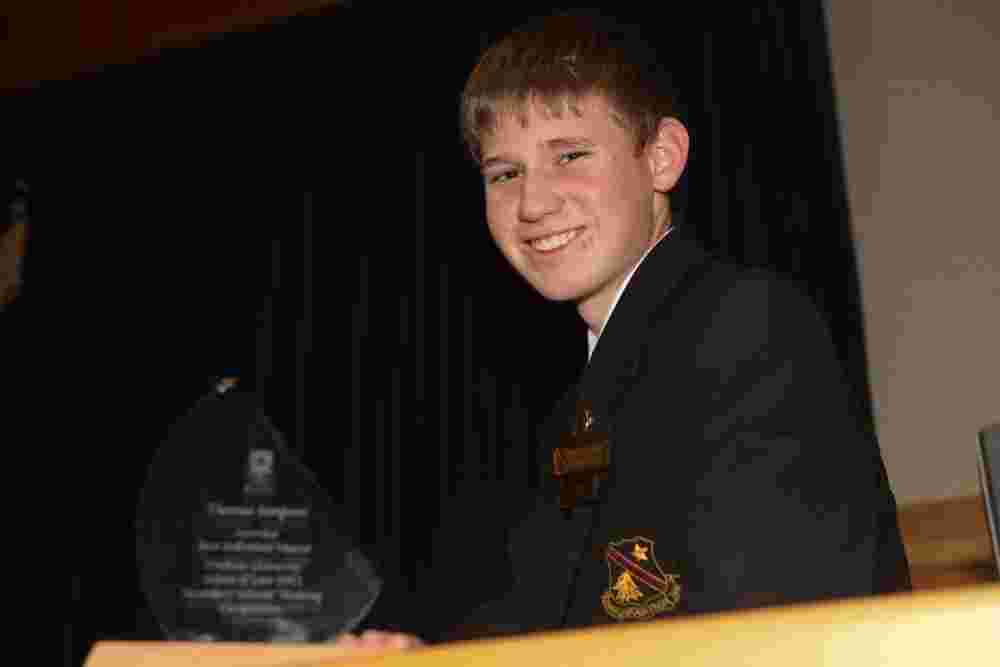Simpson Best Individual Mooter in Law Competition

Thomas Simpson won the award for Best Individual Mooter in the 2011 University of Waikato Faculty of Law Secondary Schools Mooting Competition, held in June.
Thomas Simpson, Chris Jury and Morgan Steel reached the semi-finals.
Our first round teams comprised of: (1) Isaac Whatnall, Thomas Campbell and Russell Nye-Wood and (2) Scott Cameron, Neeraj Khatri and Nathan Budd.
Waikato University Faculty of Law Secondary Schools Mooting Competition
The mooting competition was established by Te Piringa - Faculty of Law to provide secondary school students a taste of the law. Just as in a law court, this competition pits teams of "lawyers" against one another to argue a legal case before a judge.
Since 2001 the competition has grown significantly each year, with more than 35 teams competing in the 2010 competition, with schools from Hawkes Bay, Taranaki, Auckland, Waikato and the Bay of Plenty taking part. The members of the winning team are each presented with book vouchers and a $3,000 scholarship to assist with the first year of study at Te Piringa - Faculty of Law. The winning team also receives the Secondary Schools' Mooting Trophy. In addition, there is an award for the Best Individual Mooter.
What is the Secondary Schools' Mooting Competition?
The Secondary Schools' Mooting Competition has been developed to give High School students a taste of the law. Just as in a law court, this mooting competition pits teams of "lawyers" against one another to argue a legal case before a judge.
Each participating School can enter up to three teams of two or three students. The members of the winning team are each presented with a $3,000 scholarship to assist with the first year of study at Te Piringa - Faculty of Law. The winning team also receives the Secondary Schools' Mooting Trophy.
What is a Moot?
A moot is an exercise employed throughout the world as a tool of legal education. Basically, mooting provides an opportunity for students to argue over an area of uncertainty in the law. To add to the realism of the event, a moot usually takes place within a formal courtroom-like setting in front of a judge.
One way of looking at a moot is as a sort of "mock-trial". However, moots are not exactly the same as the court trials you might have seen on TV or read about. The primary difference is one of focus. Mooting is only concerned with points of law, rather than with finding out about the facts in a case. There are no witnesses to question and no jury to convince. In mooting the agreed facts are always provided in the mooting problem.
The moot itself involves two pairs of "lawyers" who prepare their case on the basis of the fact problem provided. Your job as one of the lawyers will be to convince the judge that your case is the best one. This is achieved by skillfully applying the relevant law and legal principles to the facts of your case. Details about researching relevant law and presentation of your moot are provided later in this Handbook.
Mooting has a long history in legal education. This is because moots are a useful way to introduce students to the skills that lawyers use everyday in practice. By participating in the Competition, you will get an introduction to the following skills and ideas:
- The process of litigation (taking a case to court)
- Court etiquette and procedures followed in court
- The process of legal reasoning
- The sources of law in New Zealand
- The principles of legal research
- The development and presentation of a legal argument
- General public speaking and presentation skills
Back to News

